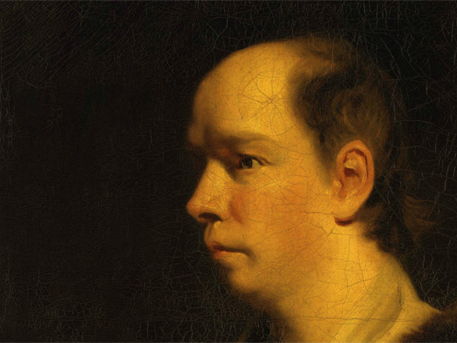

"She Stoops to Conquer" by Oliver Goldsmith has, for over a century, been the most widely read and performed 18th century play in English literature. The version provided here has been cut so as to be approximately one-third shorter than the original. The language has also been slightly simplified to make the play more accessible to both native speakers and ESL learners, while still retaining the feel of 18th century speech. At the start of each scene is a summary and at the end of each act is a set of review questions.
"She Stoops to Conquer" premiered in London in 1773, just a year before Goldsmith, a gambler and a drinker, died aged 46. It is very likely that in the play's most famous and best loved character, Tony Lumpkin, the wayward and awkward young squire, who may be too fond of a good drink and a good joke, but who definitely has a good heart, Goldsmith was immortalizing the best of his younger self.
In 1772, while he was working on "She Stoops to Conquer", Goldsmith published "An Essay on the Theatre", in which he argued that comic drama in England in his day had become so focused on being polite that it had ceased to be funny. In his play he wanted to bring back the raw, laugh-out-loud, brand of humour that he admired in the comic plays and characters of Shakespeare, as well as of the great Restoration comedies written roughly a hundred years before-- and that was exactly what he did.
In addition to making his audience laugh, Goldsmith also has a serious purpose in "She Stoops to Conquer". He was Irish and middle class and his rough manner had made his socially elite university, Trinity College Dublin, reject him. However, outside the front gate of this university, a larger than life, bronze statue of him now stands. In his play, he makes fun of a society in which class and wealth determine how people relate to one another.
The main pair of lovers in his play, Marlow and Kate, has to invent other characters for themselves in order to break out of the restrictive manners of their class and relate to each other intimately as man and woman. By making fun of class and manners in "She Stoops to Conquer", Goldsmith is the direct forerunner of the next great comic playwrights to revitalize the English stage more than one-hundred and twenty years later, his fellow Irishmen, Oscar Wilde and George Bernard Shaw.
"She Stoops to Conquer" premiered in London in 1773, just a year before Goldsmith, a gambler and a drinker, died aged 46. It is very likely that in the play's most famous and best loved character, Tony Lumpkin, the wayward and awkward young squire, who may be too fond of a good drink and a good joke, but who definitely has a good heart, Goldsmith was immortalizing the best of his younger self.
In 1772, while he was working on "She Stoops to Conquer", Goldsmith published "An Essay on the Theatre", in which he argued that comic drama in England in his day had become so focused on being polite that it had ceased to be funny. In his play he wanted to bring back the raw, laugh-out-loud, brand of humour that he admired in the comic plays and characters of Shakespeare, as well as of the great Restoration comedies written roughly a hundred years before-- and that was exactly what he did.
In addition to making his audience laugh, Goldsmith also has a serious purpose in "She Stoops to Conquer". He was Irish and middle class and his rough manner had made his socially elite university, Trinity College Dublin, reject him. However, outside the front gate of this university, a larger than life, bronze statue of him now stands. In his play, he makes fun of a society in which class and wealth determine how people relate to one another.
The main pair of lovers in his play, Marlow and Kate, has to invent other characters for themselves in order to break out of the restrictive manners of their class and relate to each other intimately as man and woman. By making fun of class and manners in "She Stoops to Conquer", Goldsmith is the direct forerunner of the next great comic playwrights to revitalize the English stage more than one-hundred and twenty years later, his fellow Irishmen, Oscar Wilde and George Bernard Shaw.
Something went wrong, please try again later.
This resource hasn't been reviewed yet
To ensure quality for our reviews, only customers who have purchased this resource can review it
Report this resourceto let us know if it violates our terms and conditions.
Our customer service team will review your report and will be in touch.
£3.00